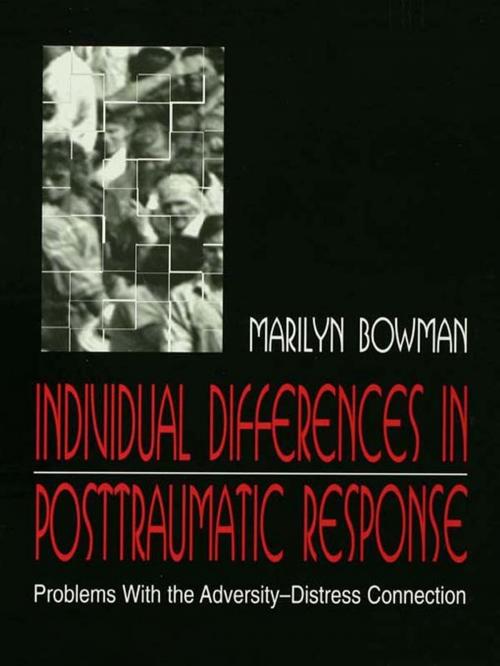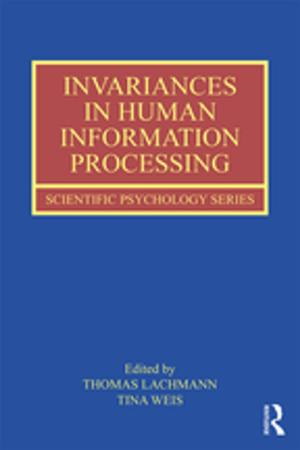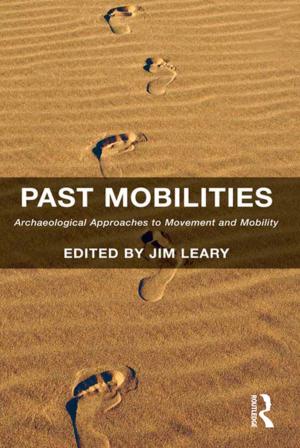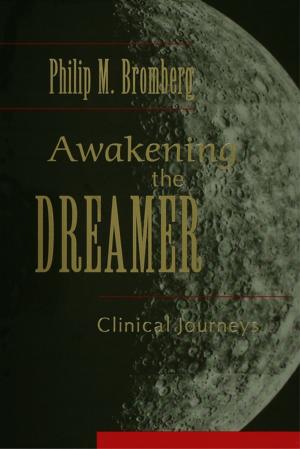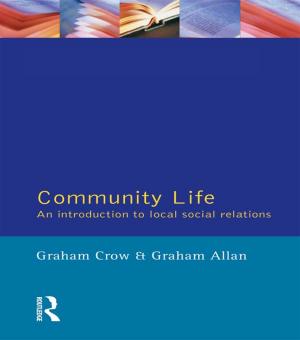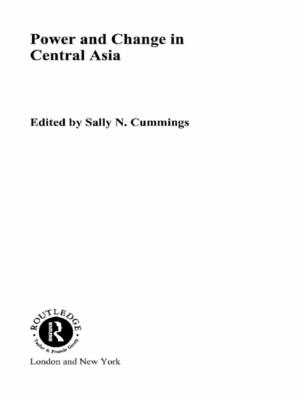individual Differences in Posttraumatic Response
Problems With the Adversity-distress Connection
Nonfiction, Health & Well Being, Psychology, Clinical Psychology, Mental Health| Author: | Marilyn L. Bowman | ISBN: | 9781134807178 |
| Publisher: | Taylor and Francis | Publication: | May 13, 2013 |
| Imprint: | Routledge | Language: | English |
| Author: | Marilyn L. Bowman |
| ISBN: | 9781134807178 |
| Publisher: | Taylor and Francis |
| Publication: | May 13, 2013 |
| Imprint: | Routledge |
| Language: | English |
This book challenges the assumptions of the event-dominated DSM model of posttraumatic stress disorder. Bowmam examines a series of questions directed at the current mental health model, reviewing the empirical literature. She finds that the dose-response assumptions are not supported; the severity of events is not reliable associated with PTSD, but is more reliably associated with important pre-event risk factors. She reviews evidence showing the greater role of individual differences including trait negative affectivity, belief systems, and other risk factors, in comparison with event characteristics, in predicting the disorder. The implications for treatment are significant, as treatment protocols reflect the DSM assertion that event exposure is the cause of the disorder, implying it should be the focus of treatment. Bowman also suggests that an event focus in diagnosis anad treatment risks increases the disorder because it does not provide sufficient attention to important pre-exisiting risk factors.
This book challenges the assumptions of the event-dominated DSM model of posttraumatic stress disorder. Bowmam examines a series of questions directed at the current mental health model, reviewing the empirical literature. She finds that the dose-response assumptions are not supported; the severity of events is not reliable associated with PTSD, but is more reliably associated with important pre-event risk factors. She reviews evidence showing the greater role of individual differences including trait negative affectivity, belief systems, and other risk factors, in comparison with event characteristics, in predicting the disorder. The implications for treatment are significant, as treatment protocols reflect the DSM assertion that event exposure is the cause of the disorder, implying it should be the focus of treatment. Bowman also suggests that an event focus in diagnosis anad treatment risks increases the disorder because it does not provide sufficient attention to important pre-exisiting risk factors.
